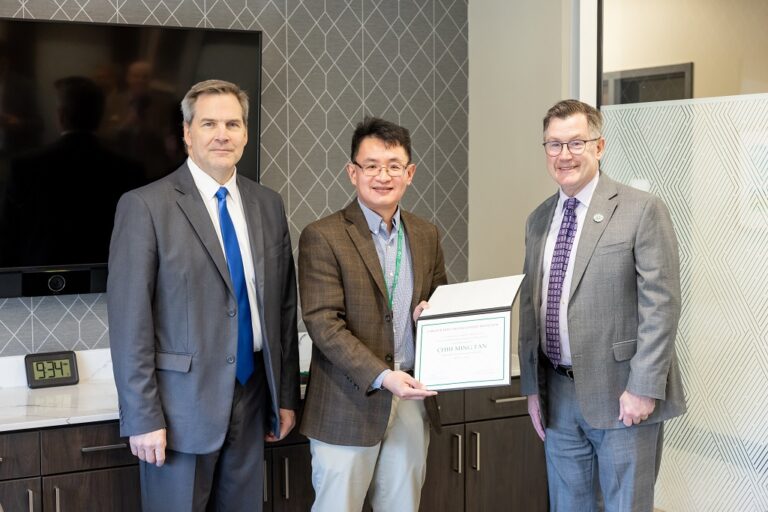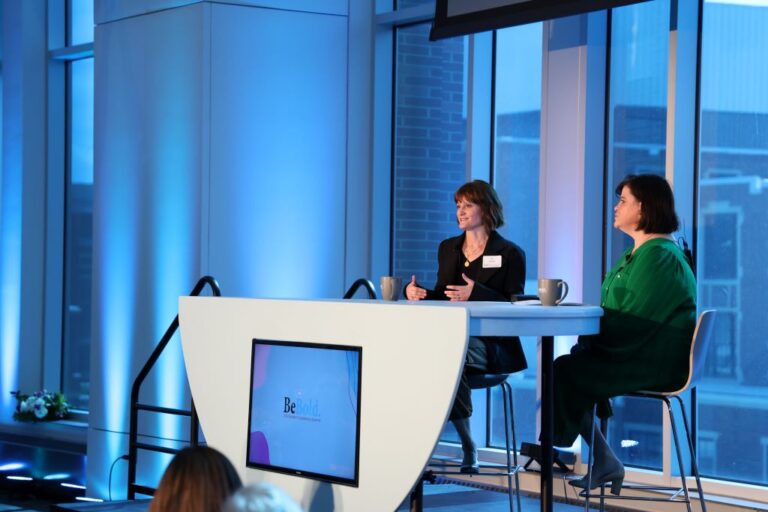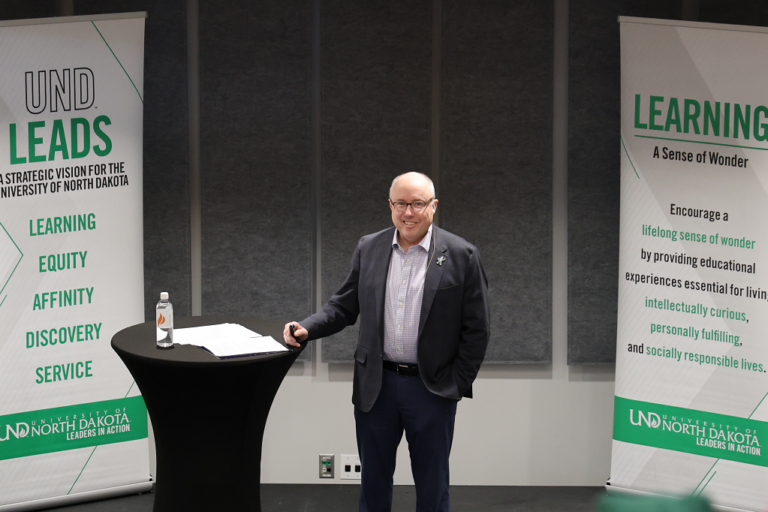Writers Conference event goes virtual
An online Writers Conference discussion focuses on military experiences, writing and supporting veteran students

A multi-day event that traditionally brings acclaimed book authors from around the country to the University of North Dakota, the Writers Conference, could not take place this month due to the coronavirus outbreak.
Yet, an intimate and wide-ranging discussion with one author did occur – via Zoom. Last week, more than 30 people joined a virtual meeting to hear from and chat with Matt Young, who penned Eat the Apple, a memoir of his service in the Marine Corps.
The occasion last Thursday concluded a three-month long book read for UND faculty and staff, who, though Eat the Apple, explored the meaning of “inclusive excellence.” The Teaching Transformation and Development Academy organized the project – the Inclusive Excellence Faculty and Staff Book Read – in partnership with the Writers Conference, which Young was to have attended as a featured author.
“As a book read sponsored through TTaDA, we are focused on the diverse experiences and identities of the book’s characters and applying insights from the book to working with students and co-workers,” said Casey Ozaki, associate professor in the Department of Education, Health, & Behavior Studies and a faculty fellow for inclusive excellence.
An author’s journey through the military and into writing
Now an assistant professor of writing, composition and literature at Centralia College, a community college in Centralia, Wash., Young enlisted in the Marine Corps when he was 18 and looking for purpose. He did three tours in Iraq, experiencing combat through a personal prism of rawness, terror and doubt.
Upon his discharge from the military, Young earned a bachelor’s degree followed by a master’s degree in creative writing from Miami University. With his debut novel, Eat the Apple, he offers a unique perspective on war – a candid, sober account that also does not lack in humor.
For some time, Young tried to craft lofty tales of military valor, of the higher purpose guiding American military engagements. “They were just really bad,” he said. “One because I was writing about myself. I kept putting myself as the narrator and also in a character position. And, they just ended up feeling so defensive.”
Then, he paused his writing, allowing himself to just think and process his experiences. When he finally returned to the empty page, Young brought along his wit – the same voice with which he tells stories in bars to solicit laughter.
“When I finally came back to writing about my time in the Marine Corps, I left this literary lens behind and stopped trying to adopt this voice that was not me,” he said.
As a result, Eat the Apple teems not only with memorable stories, but also lists and sketches and letters that convey the chaos of war but also chronicle the personal pitfalls and subsequent growth amid it all.
“We’ve also been conditioned for the last 20 years to just thank veterans and move on,” Young said. “I think that I’m kind of starting to rewrite that narrative and understanding how those narratives have changed in the last 20 years, what they might have been like beforehand and what I think a lot of people would like them to become in the future. This is what I’m hoping to get across with the book.”
Pulitzer laureate Tim Weiner called Young’s first book “the Iliad of the Iraq War.” National Public Radio described Young as a “frank, funny and mercilessly self-lacerating narrator.”
Ways to serve military and veteran students
A book author with a refreshing way of writing about war and a veteran who now teaches other veterans, at the teleconference last week with UND staff and faculty, Young spoke not only about his literary journey but also about military friendliness on campus.
Both UND and Centralia College, where Young works, are considered military friendly higher-education institutions that offer the support and community veterans need to succeed.
(At UND, TTaDA offers resources on welcoming and including veteran and military students, while the Veteran & Military Services office helps service members and their families succeed academically.)
“A lot of veterans who are just getting out of the military and are transitioning from that life into civilian life are trying to recraft some kind of identity that doesn’t revolve around the military,” Young said.
Thus the need for educators, advisors and facilitators who are attuned to veterans’ individual, unique needs. For instance, in a university setting, some may ask only for general guidance with course selection and financial aid. Others may request detailed steps to follow, still seeking the regimented nature of the military.
“Think about the implicit hierarchy of the military,” said Young. “Those are kind of nuanced issues that maybe a veteran advisor can understand.”
Veteran centers and clubs usually provide the kind of understanding and social place that benefit veteran students, but Young cautioned against self-exclusion from other groups on campus.
“When I went back to college after I got out of the military, I had this idea that I had this specialized knowledge that nobody else had, where I felt like I had done these things that nobody else around me had done,” Young said. “All these other people were silly 18 or 20 year olds running around. I felt like a crusty old man. I felt like that because I isolated myself and kept myself away from those other groups of people. And it’s something that I wish I’d been more involved in as a student.”
Because of his own experience, Young now urges his veteran students to seek connections with university peers of disparate backgrounds.
As a writing teacher, though, he tries to give his students room to contemplate their military experiences or other personal ordeals.
“One mistake a lot of us make, especially as writing instructors, or English instructors, is encouraging, maybe a little bit more than you should, students to write about those experiences even if students aren’t ready for that,” Young said. “I think it is important to be aware that not every student is going to be ready to write about the trauma in their life.
“I think giving students the kind of permission to leave their old identity behind and explore something else is really important.”


